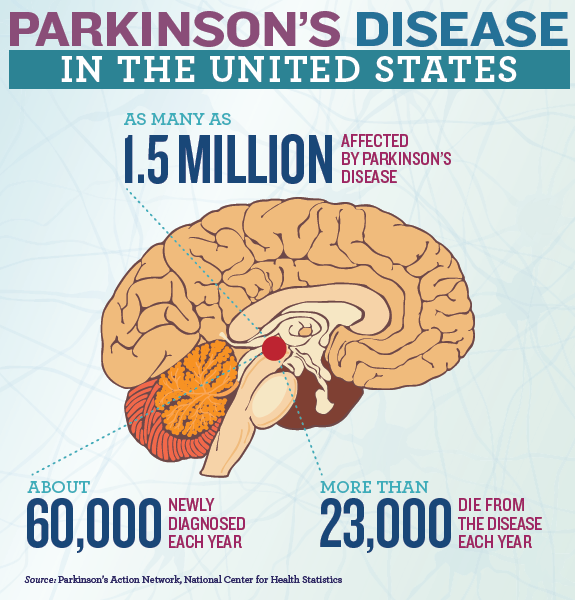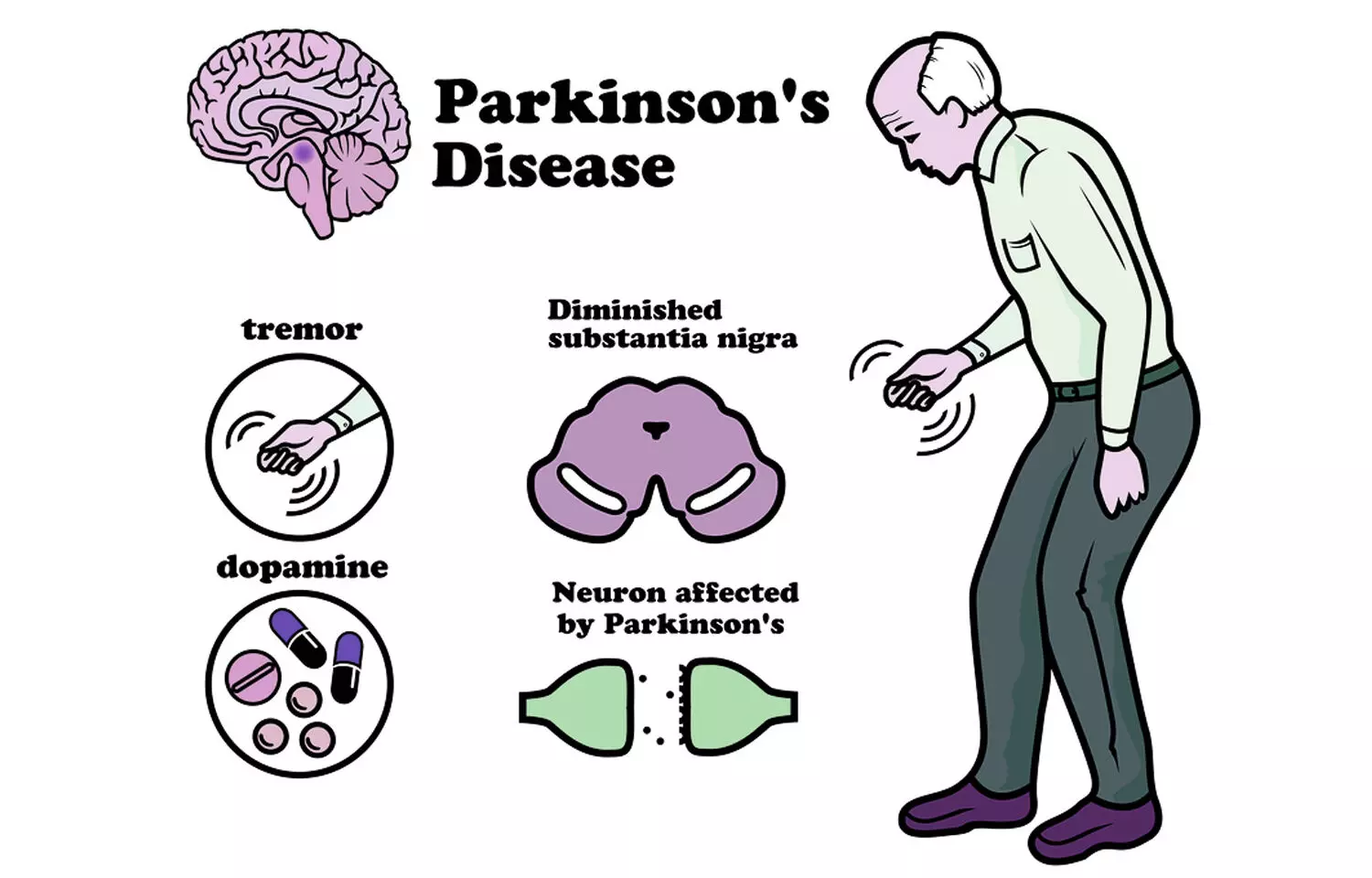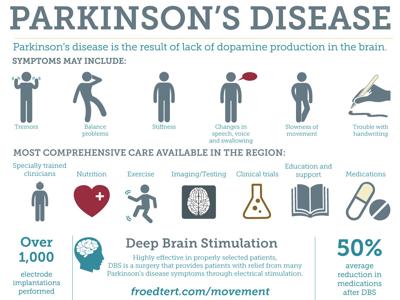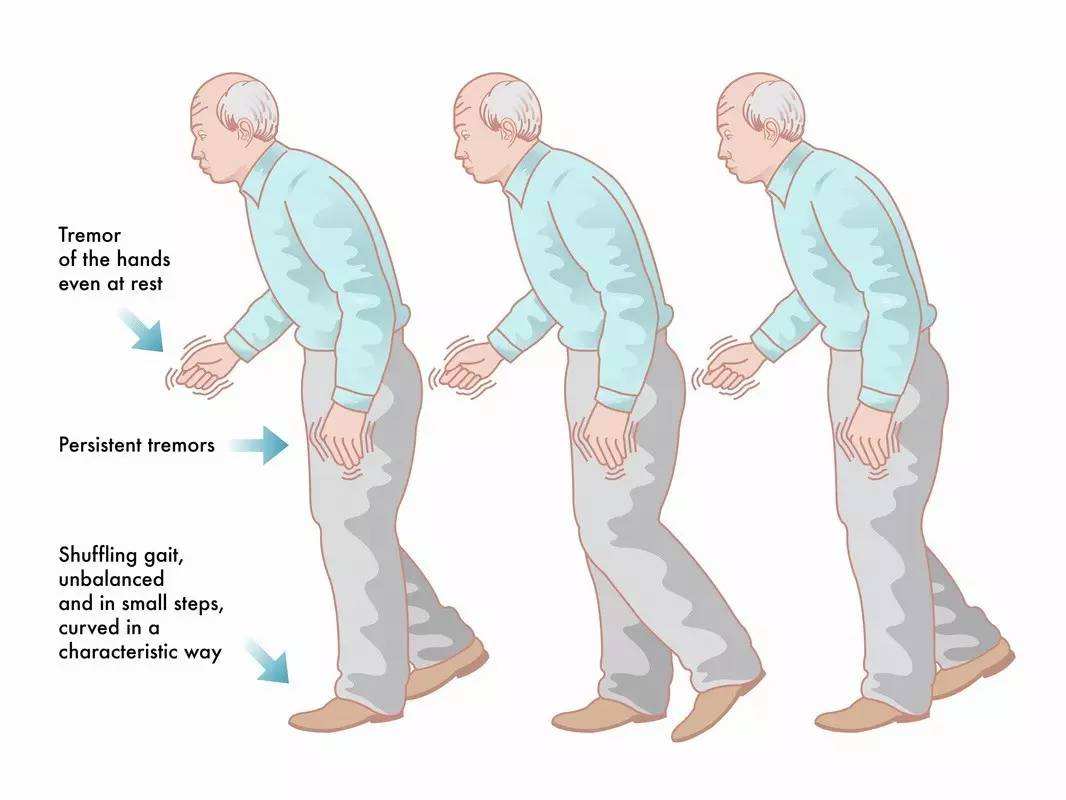Parkinson's disease - Wikipedia Can Be Fun For Everyone

Some Known Factual Statements About Home: Parkinson's Disease & Movement Disorders Center
Summary What is Parkinson's disease? Parkinson's disease is a nervous system disease that affects your capability to control motion. More In-Depth begins out gradually and gets worse in time. If you have Parkinson's disease, you may shake, have muscle stiffness, and have trouble strolling and preserving your balance and coordination.
Who gets Parkinson's illness? About 50% more men than females get Parkinson's disease. It is most typically seen face to faces 60 years of age and older. Nevertheless, approximately 10% of clients are diagnosed prior to age 50. About 60,000 new cases of Parkinson's illness are diagnosed in the United States each year.


Parkinson's Disease: Symptoms, 5 Stages, Hereditary & Treatment
There is some belief that some cases of early-onset Parkinson's illness disease starting before age 50 may be inherited. Researchers identified a gene anomaly in people with Parkinson's illness whose brains contain Lewy bodies, which are clumps of the protein alpha-synuclein. Researchers are trying to understand the function of this protein and its relationship to hereditary mutations that are often seen in Parkinson's disease and in people with a kind of dementia called Lewy body dementia.

What Is Parkinson's? - Parkinson's Foundation
Mutations in these genes trigger irregular cell functioning, which affects the afferent neuron' ability to release dopamine and triggers afferent neuron death. Scientists are still trying to find what triggers these genes to mutate in order to understand how gene mutations influence the advancement of Parkinson's illness. Researchers believe that about 10% to 15% of person's with Parkinson's illness might have a genetic anomaly that inclines them to advancement of the disease.

10 Early Signs of Parkinson's Disease - Parkinson's Foundation
Not known Factual Statements About Parkinson's Disease: Diagnosis and Treatment - American
Symptoms and Causes What triggers Parkinson's disease? Parkinson's illness happens when afferent neuron (nerve cells) in a location of the brain called the substantia nigra become impaired or die. These cells normally produce dopamine, a chemical (neurotransmitter) that assists the cells of the brain communicate (sends signals, "messages," in between areas in the brain).
Dopamine is specifically important for the operation of another location of the brain called the basal ganglia. This area of the brain is accountable for organizing the brain's commands for body motion. The loss of dopamine causes the movement symptoms seen in people with Parkinson's disease. Individuals with Parkinson's disease also lose another neurotransmitter called norepinephrine.
